|
Books Should Be Free Loyal Books Free Public Domain Audiobooks & eBook Downloads |
|
|
Books Should Be Free Loyal Books Free Public Domain Audiobooks & eBook Downloads |
|
Literature |
|---|
|
Book type:
Sort by:
View by:
|
By: James Otis (1848-1912) | |
|---|---|
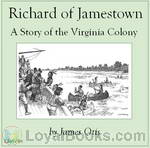 Richard of Jamestown: A Story of the Virginia Colony
Richard of Jamestown: A Story of the Virginia Colony
Richard of Jamestown by James Otis was written for children with the purpose to show them the daily home life of the Virginia colonists. It is written from the viewpoint of a young boy named Richard Mutton. | |
By: Edward Elmer Smith (1890-1965) | |
|---|---|
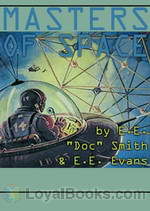 Masters of Space
Masters of Space
The Masters had ruled all space with an unconquerable iron fist. But the Masters were gone. And this new, young race who came now to take their place–could they hope to defeat the ancient Enemy of All? | |
By: Louis Hémon (1880-1913) | |
|---|---|
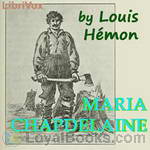 Maria Chapdelaine
Maria Chapdelaine
Maria Chapdelaine is one of the most famous French Canadian novels. It is the love story of Maria Chapdelaine, daughter of a peasant family in the Saguenay-Lac-St-Jean region of Quebec, in the 1900s. It is often seen as an allegory of the French Canadian people, describing simple joys and great tragedies, the bonds of family, the importance of faith, and the strength of body and spirit needed to endure the harshness of life in Canada’s northern wilderness. | |
By: Johnny Gruelle (1880-1938) | |
|---|---|
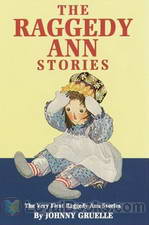 Raggedy Ann Stories
Raggedy Ann Stories
To the millions of children and grown-ups who have loved a Rag Doll, the author dedicated these stories. Now listen as Shannon reads to you Raggedy Ann’s exciting adventures; as gentle and charming today, as they were when first published in 1918. Find out what is written on her candy heart, what was the gift the fairies brought, and all about Raggedy Ann’s new sisters. | |
By: Walter Besant (1836-1901) | |
|---|---|
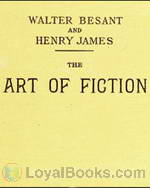 The Art of Fiction
The Art of Fiction
A lecture on the art of fiction, given by the English critic Walter Besant on April 25, 1884, and an answer to the lecture by American writer Henry James in the same year. | |
By: U. Waldo Cutler | |
|---|---|
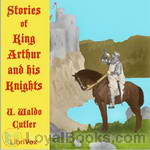 Stories of King Arthur and His Knights
Stories of King Arthur and His Knights
Stories of King Arthur and His Knights. Retold from Malory’s “Morte dArthur”. | |
By: E.E. “Doc” Smith (1890-1965) | |
|---|---|
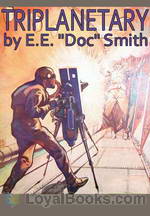 Triplanetary
Triplanetary
“Doc” E.E. Smith pretty much invented the space opera genre, and Triplanetary is a good and well-known example. Physics, time, and politics never stand in the way of a plot that gallops ahead without letup. Having earned a PhD in chemical engineering, it’s understandable that the heroes of Smith’s story are all scientists. He didn’t want to be constrained by the limits of known science, however, so in his hands the electromagnetic spectrum becomes a raw material to be molded into ever-more amazing and lethal forms, and the speed of light is no bar to traveling through the interstellar void... | |
By: Donald McGibney | |
|---|---|
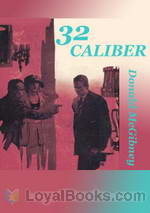 32 Caliber
32 Caliber
The recent interest that's being generated in the pulp fiction writers of the 1920s has lead to many of the books of that genre being resurrected and read once again. For modern-day readers, these represent what are now called “airport-lounge reads” and ideal for those few hours that you have to kill waiting in an airport or railway station, while traveling or on holiday, when you don't want anything too heavy to weigh you down! Pulp fiction, so called because the books were generally printed on cheaper paper made from recycled wood pulp, had certain characteristics... | |
By: C. J. Dennis (1876-1938) | |
|---|---|
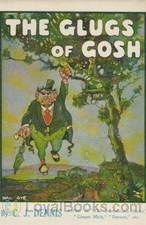 The Glugs of Gosh
The Glugs of Gosh
First published in 1917, The Glugs of Gosh satirizes Australian life at the start of the twentieth century – but the absurdities it catalogs seem just as prevalent at the start of the twenty-first. The foolishness of kings, the arrogance of the elite, the gullibility of crowds, the pride of the self-righteous, the unthinking following of tradition – all find themselves the targets of C. J. Dennis’ biting wit. | |
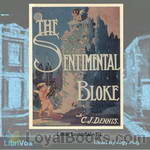 The Songs of a Sentimental Bloke
The Songs of a Sentimental Bloke
The Songs of a Sentimental Bloke is a verse novel by Australian novelist and poet C. J. Dennis. The book sold over 60,000 copies in nine editions within the first year, and is probably one of the highest selling verse novels ever published in Australia.The novel tells the story of Bill, a larrikin of the Little Lonsdale Street Push, who is introduced to a young woman by the name of Doreen. The book chronicles their courtship and marriage, detailing Bill’s transformation from a violence-prone gang member to a contented husband and father. C.J. Dennis went on to publish three sequels to this novel: The Moods of Ginger Mick (1916), Doreen (1917) and Rose of Spadgers (1924) | |
By: James Edward Austen-Leigh (1798-1874) | |
|---|---|
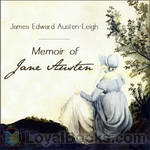 Memoir of Jane Austen
Memoir of Jane Austen
“The Memoir of my Aunt, Jane Austen, has been received with more favour than I had ventured to expect. The notices taken of it in the periodical press, as well as letters addressed to me by many with whom I am not personally acquainted, show that an unabated interest is still taken in every particular that can be told about her. I am thus encouraged not only to offer a Second Edition of the Memoir, but also to enlarge it with some additional matter which I might have scrupled to intrude on the public if they had not thus seemed to call for it... | |
By: Luis Vaz de Camões (1524-1580) | |
|---|---|
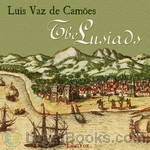 The Lusiads
The Lusiads
The Lusiads (Os Lusíadas) is a Portuguese epic poem, written in the 16th century by Luis Vaz de Camões. The poem tells the tale of the Portuguese discoveries in the 15th and 16th centuries, specially the voyage to India by Vasco da Gama. Modelled after the classic epic tradition, Camões' Lusiads are considered not only the first literary text in Modern Portuguese, but also a national epic of the same level as Vergil's Aeneid. In the 19th century, Sir Richard Francis Burton translated Camões' Lusiads, in what he considered "the most pleasing literary labour of his life". | |
By: Erskine Childers (1870-1922) | |
|---|---|
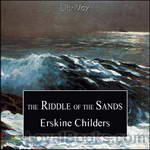 The Riddle of the Sands
The Riddle of the Sands
Containing many realistic details based on Childers’ own sailing trips along the German North Sea coast, the book is the retelling of a yachting expedition in the early 20th century combined with an adventurous spy story. It was one of the early invasion novels which predicted war with Germany and called for British preparedness. The plot involves the uncovering of secret German preparations for an invasion of the United Kingdom. It is often called the first modern spy novel, although others are as well, it was certainly very influential in the genre and for its time... | |
By: Ada Cambridge (1844-1926) | |
|---|---|
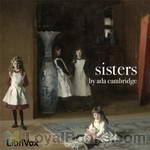 Sisters
Sisters
Ada Cambridge (November 21, 1844 – July 19, 1926), later known as Ada Cross, was an English born Australian writer. While she gained recognition as Australia’s first woman poet of note, her longer term reputation rests on her novels. Overall she wrote more than twenty-five works of fiction, three volumes of poetry and two autobiographical works.[1] Many of her novels were serialised in Australian newspapers, and were never published in book form. The story pans over three – four decades revolving the four Pennycuick sisters. | |
By: H Rider Haggard | |
|---|---|
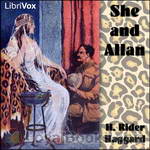 She and Allan
She and Allan
H Rider Haggard’s “She and Allan”, first published in 1921 is a gripping adventure about Allan Quatermain, who together with Hans, the Hottentot and, the Zulu-Chief Omslopogaas and at the bidding of the old Witch Doctor Zikali seeks out Ayesha, the daughter of Isis to find answers to their questions about life and death, and their many, sometimes strange, Adventures on their way. Written by Lars Rolander | |
By: Eleanor M. Ingram (1886-1921) | |
|---|---|
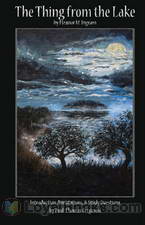 The Thing from the Lake
The Thing from the Lake
To get away from city life periodically, New Yorker Roger Locke purchases an abandoned farm house in rural Connecticut, and with the assistance of his cousin Phillida and her beau Ethan Vere, he sets about fixing up the place. Immediately however, an unseen mysterious woman begins giving him warnings during nocturnal visits to leave the house at once. Soon he begins hearing strange ominous sounds emanating from the tiny lake at the back of the house coupled with a permeation of sickly odors. An evil presence then begins to visit him during the witching hours of the late night, challenging him to a battle of wits from which there can be only one victor... | |
By: Abraham Merritt | |
|---|---|
 The Metal Monster
The Metal Monster
The Metal Monster is an Abraham Merritt fantasy novel.Dr. Goodwin is on a botanical expedition in the Himalayas. There hemeets Dick Drake, the son of one of his old science acquaintances. They are witnesses of a strange aurora-like effect, but seemingly a deliberate one. As they go out to investigate, they meet Goodwin’s old friends Martin and Ruth Ventnor, brother and sister scientists. The two are besieged by Persians as Darius III led when Alexander of Macedon conquered them more than two thousand years ago.(Wikipedia) | |
 The Moon Pool
The Moon Pool
Dr. David Throckmartin’s scientific expedition to the South Sea Islands discovers among ancient ruins a portal into Muria, an unknown underground world. After the disappearance of Throckmartin, his wife and two companions, his old friend Dr. Walter Goodwin enters Muria with a rescue party, only to confront an fantastic world filled with incredible beings, astounding scientific advances, and the worship of the most evil of all creatures, The Dweller. (Introduction by Mark Nelson) | |
By: Grant Allen | |
|---|---|
 The Woman Who Did
The Woman Who Did
Most times, especially in the time when this book was written (1895), it is just as nature and society would wish: a man and woman “fall in love” and get married. But it is not so for Herminia Barton and Alan Merrick. They do indeed fall in love, but Herminia has a deeply held belief in freedom for women, and she holds immutable views against what she perceives as the slavery of marriage.Alan unwillingly agrees to her strong wish to remain unmarried and to live together as “close and dear friends”... | |
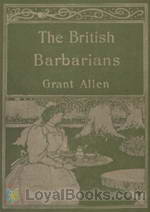 The British Barbarians
The British Barbarians
After Civil Servant Philip Christy crosses paths with the mysterious Bertram Ingledew in the respectable suburb of Brackenhurst, Philip and his sister Frida, married to the wealthy Scot Robert Monteith, become friends with the stranger. Bertram has some unconventional concepts about society, and as the story unfolds, his beliefs and actions cause much disruption in the family and the neighbourhood.Who is Bertram? Where does he come from? Allen explores some interesting ideas about society, some of which are curiously relevant today... | |
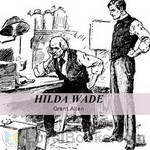 Hilda Wade, A Woman With Tenacity of Purpose
Hilda Wade, A Woman With Tenacity of Purpose
In this early detective novel, the detective is Hilda Wade. She is a very capable nurse, but there is something mysterious about her from the moment she arrives at the hospital. Upon meeting her, Dr. Hubert Cumberledge greatly admires her and becomes a devoted friend. It turns out that Hilda has one purpose in life, and in pursuit of that purpose she will travel across the world, from London to South Africa, Rhodesia, India, Nepaul, Tibet and back. With Cumberledge's support, her extraordinary logic and clear thinking lead her on through deadly perils. But will that be enough to accomplish the secret purpose which has driven her so long and so far? | |
By: G. K. Chesterton (1874-1936) | |
|---|---|
 Magic: A Fantastic Comedy
Magic: A Fantastic Comedy
| |
By: William H. Hudson (1841-1922) | |
|---|---|
 Far Away and Long Ago
Far Away and Long Ago
William Henry Hudson (August 1841 – 1922) was an author, naturalist and ornithologist. Hudson was born of U.S. parents living in the Quilmes Partido in Buenos Aires Province, Argentina, where he spent his youth studying the local flora and fauna and observing both natural and human dramas on what was then a lawless frontier. ‘Far Away and Long Ago’ is a classic memoir of a boy, fascinated by nature, on the Pampas in the 19th century. | |
 Green Mansions: A Romance of the Tropical Forest
Green Mansions: A Romance of the Tropical Forest
“Green Mansions: A Romance of the Tropical Forest” is a narration of his life story by Abel, a Venezuelan, to a comrade. Once a wealthy young man, he meddled in politics to the extent of provoking a revolution… which failed.Escaping into the tropical forests of Guyana Abel takes up gold hunting, then journal-writing, and fails at both. Now with no aim for his life, he drifts until he takes up residence with a remote Indian tribe. Soon he learns of a wood the Indians avoid, as it is inhabited by a dangerous Daughter of the Didi, who, they say, slew one of them with magic... | |
By: W. M. Flinders Petrie | |
|---|---|
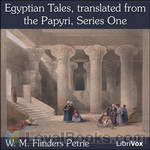 Egyptian Tales, translated from the Papyri, Series One
Egyptian Tales, translated from the Papyri, Series One
Brief, and in some cases incomplete, stories of magic from ancient Egypt. | |
By: Rupert Brooke | |
|---|---|
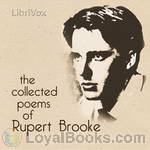 Collected Poems of Rupert Brooke
Collected Poems of Rupert Brooke
Rupert Chawner Brooke (August 3, 1887 – April 23, 1915) was an English poet known for his idealistic War Sonnets written during the First World War (especially The Soldier), as well as for his poetry written outside of war, especially The Old Vicarage, Grantchester and The Great Lover. He was also known for his boyish good looks, which prompted the Irish poet William Butler Yeats to describe him as “the handsomest young man in England”. | |
By: Edward George Bulwer-Lytton (1803-1873) | |
|---|---|
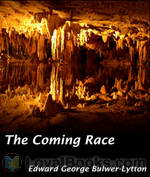 The Coming Race
The Coming Race
Edward George Earle Lytton Bulwer-Lytton, 1st Baron Lytton (1803-1873) was an English novelist, poet, playright, and politician. Lord Lytton was a florid, popular writer of his day, who coined such phrases as “the great unwashed”, “pursuit of the almighty dollar”, “the pen is mightier than the sword”, and the infamous incipit “It was a dark and stormy night.” Despite his popularity in his heyday, today his name is known as a byword for bad writing. San Jose State University holds... | |
By: Algernon Charles Swinburne (1837-1909) | |
|---|---|
 Century of Roundels
Century of Roundels
A roundel (not to be confused with the rondel) is a form of verse used in English language poetry devised by Algernon Charles Swinburne (1837–1909). It is a variation of the French rondeau form. It makes use of refrains, repeated according to a certain stylized pattern. A roundel consists of nine lines each having the same number of syllables, plus a refrain after the third line and after the last line. The refrain must be identical with the beginning of the first line: it may be a half-line, and rhymes with the second line... | |
By: Publius Ovidius Naso | |
|---|---|
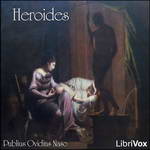 Heroides
Heroides
The Heroides, also known as the Heroines, the Letters of the Heroines or simply as Epistles are a very famous collection of poems by Ovid, not only for their interesting subject – letters by famous mythological characters addressed to their beloved ones – but also because it’s considered by some the first example of the Epistle as a literary genre – a statement made by Ovid himself in his Ars Amatoria. The book as we have it nowadays consists of 21 letters, divided in two parts. The first... | |
By: Charlotte Perkins Gilman (1860-1935) | |
|---|---|
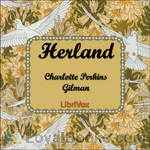 Herland
Herland
Herland is a utopian novel from 1915, written by feminist Charlotte Perkins Gilman. The book describes an isolated society comprised entirely of Aryan women who reproduce via parthenogenesis (asexual reproduction). The result is an ideal social order, free of war, conflict and domination. It first appeared as a serial in Perkin’s monthly magazine Forerunner. | |
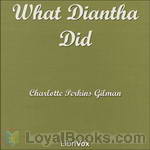 What Diantha Did
What Diantha Did
Charlotte Perkins Gilman opens a window of history through which we see a small part of the determined efforts made by women to elevate the circumstances of women in the early 20th century.Diantha Bell is a normal young woman desiring marriage and a home, but also she desires a challenging career in new territory that raises many eyebrows and sets malicious tongues wagging. Her effort to elevate housework and cooking to a regulated and even a scientific business, for the relief of homemakers, is a depiction of the late 19th century movement to promote Domestic Science, or Home Economics, as a means of providing more healthful home life, as well as career paths for women... | |
By: Bliss Carman | |
|---|---|
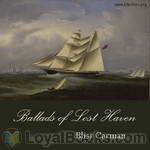 Ballads of Lost Haven: A Book of the Sea
Ballads of Lost Haven: A Book of the Sea
This collection of lyric poems evokes the sea in every line, from birth (A Son of the Sea) to death (Outbound). The smells, sights and sounds of the Canada's East Coast feature prominently. | |
By: Henry Wadsworth Longfellow (1807-1882) | |
|---|---|
 Rainy Day
Rainy Day
MANUAL OF SURGERY, OXFORD MEDICAL PUBLICATIONSBY ALEXIS THOMSON, F.R.C.S.Ed.PREFACE TO SIXTH EDITION Much has happened since this Manual was last revised, and many surgical lessons have been learned in the hard school of war. Some may yet have to be unlearned, and others have but little bearing on the problems presented to the civilian surgeon. Save in its broadest principles, the surgery of warfare is a thing apart from the general surgery of civil life, and the exhaustive literature now available on every aspect of it makes it unnecessary that it should receive detailed consideration in a manual for students... | |
By: William Le Queux (1864-1927) | |
|---|---|
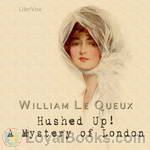 Hushed Up! A Mystery of London
Hushed Up! A Mystery of London
A young man, Owen Biddulph, is drawn to a beautiful young woman with a mysterious past... a past that seems to have returned to cause her disappearance! Is she his new found love or his nemesis? And who is this mysterious clergyman that warns him to avoid this young woman, at risk of his very life! What possible harm could this sweet young woman inflict? Written by one of the Masters of Mystery, William Le Queux. (Introduction by Tom Weiss) | |
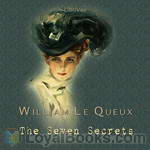 The Seven Secrets
The Seven Secrets
A true “whodunit” with as many twists and turns as an English country road. Old man Courtenay is found murdered in his bed. Dr. Ralph Boyd is summoned to Courtenay Manor to examine the slain man and discovers a clue that might solve the case. But, he decides to keep the clue private for personal reasons. In the meantime, Scotland Yard has no clues as the culprits or the motive. Dr. Boyd, because of his new found clue, is sure he knows who is the murderer. Or, is it a murderess? His intimate acquaintance, Ambler Jevons, is also investigating the crime but Dr... | |
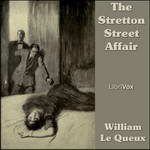 The Stretton Street Affair
The Stretton Street Affair
Hugh Gabriel has recently been repatriated from the war and has rejoined his old firm as an electrical engineer. On the way to visit his uncle one night, he is asked by a servant if he would be willing to meet with his wealthy master who is in some distress. Hugh becomes witness to, and directly involved with, a dastardly murder. Or has he? Who is this mysterious millionaire Oswald De Gex he has been asked to meet with? Is Doctor Moroni an honest physician or a diabolical monster? And what about... | |
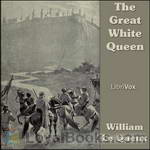 The Great White Queen
The Great White Queen
How to describe this book? In a word – savage. For those regular Le Queux mystery listeners, this book is a step in a different direction by the author. The book starts out like most Le Queux. Our hero, Richard Scarsmere, befriends an individual (Omar) at an English boarding school who turns out to be an African prince from a kingdom called Mo. Omar receives a visit from one of his mother’s trusted advisers. His mother, the Great White Queen, seeks him to return home immediately. Omar convinces Scarsmere to return to Africa with him since there is little opportunity awaiting him in London. What follows is a tale of deceit, treachery, barbarity, and mystery. | |
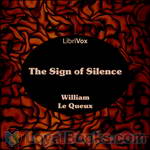 The Sign of Silence
The Sign of Silence
Edward Royle is the head of a well-known chemical manufacturer in England, which he has inherited. He is engaged to the daughter of his father’s former partner, Phrida Shand, who lives with her mother. One night he is asked by his friend, Sir Digby Kemsley – a very famous railroad engineer, to come to his flat to discuss something although Kemsley is quite mysterious on the telephone. Royle visits, then returns home only to be summoned again by Kemsley, this time imploring him to return at once... | |
By: Katherine Pyle (1863-1938) | |
|---|---|
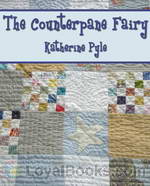 The Counterpane Fairy
The Counterpane Fairy
A little boy, recuperating from a lengthy illness, is entertained by visits from the Counterpane Fairy, who treats him to stories associated with each of the squares in the counterpane (quilt) on his sickbed. She has him concentrate on one of the squares until it turns into something like a doorway into the story. Once inside the story, he becomes its lead character until it fades out as if he’s awakening from a dream. | |
By: Frank Froest (1858-1930) | |
|---|---|
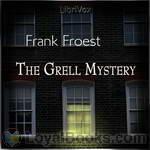 The Grell Mystery
The Grell Mystery
Mr Robert Grell, millionaire and socialite, is found murdered in his study on a stormy evening. It’s up to Heldon Foyle, the detective, to unravel the mystery. | |
By: Haggard, H. Rider (1856-1925) | |
|---|---|
 Ayesha, the Return of She
Ayesha, the Return of She
Ayesha, the return of She, is set 16 years after the previous novel She. Horace Holly and Leo Vincey have spent the years travelling the world looking for Ayesha, along the way they experience many adventures, including avalanches, glaciers and even death-hounds before finally arriving in the court of Kaloon. At the court, they hear tell of a woman who Leo suspects to be Ayesha, however things are never simple and conflict soon follows them to Ayesha’s court. (Summarised from Wikipedia) | |
By: Robert Williams Wood (1868-1955) | |
|---|---|
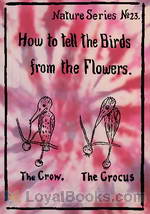 How to Tell the Birds from the Flowers
How to Tell the Birds from the Flowers
How do you tell apart a parrot from a carrot? A plover from a clover? A bay from a jay? Although there are several ways of differentiating, R. W. Wood’s use of pun and rhyme is one of the most entertaining! | |
By: Samuel Johnson (1709-1784) | |
|---|---|
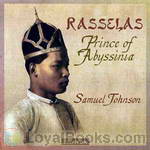 Rasselas, Prince of Abyssinia
Rasselas, Prince of Abyssinia
In this enchanting fable (subtitled The Choice of Life), Rasselas and his retinue burrow their way out of the totalitarian paradise of the Happy Valley in search of that triad of eighteenth-century aspiration – life, liberty and happiness.According to that quirky authority, James Boswell, Johnson penned his only work of prose fiction in a handful of days to cover the cost of his mother’s funeral. The stylistic elegance of the book and its wide-ranging philosophical concerns give no hint of haste or superficiality... | |
By: Christopher Marlowe (1564-1593) | |
|---|---|
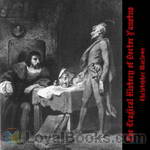 The Tragical History of Doctor Faustus
The Tragical History of Doctor Faustus
The Tragical History of Doctor Faustus, normally known simply as Doctor Faustus, is a play by Christopher Marlowe, based on the Faust story, in which a man sells his soul to the devil for power and knowledge. Doctor Faustus was first published in 1604, eleven years after Marlowe's death and at least twelve years after the first performance of the play. | |
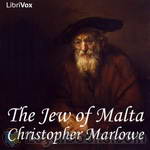 The Jew of Malta
The Jew of Malta
Christopher “Kit” Marlowe (baptised 26 February 1564 – 30 May 1593) was an English dramatist, poet, and translator of the Elizabethan era. The foremost Elizabethan tragedian before William Shakespeare, he is known for his magnificent blank verse, his overreaching protagonists, and his own untimely death. The Jew of Malta (1589) is an original story of religious conflict, intrigue, and revenge, set against a backdrop of the struggle for supremacy between Spain and the Ottoman Empire in the Mediterranean... | |
 Hero and Leander
Hero and Leander
“Who ever lov’d, that lov’d not at first sight?” The wonder-decade of the English drama was suddenly interrupted in 1592, when serious plague broke out in London, forcing the closure of the theatres. Leading playwrights took to penning languorously erotic poetry to make ends meet: so we have Venus and Adonis, The Rape of Lucrece - and Marlowe’s blazing masterpiece, Hero and Leander. Marlowe’s poem became more notorious than either of Shakespeare’s, due not only to its homophile provocations but also to the scandal attaching to every aspect of Marlowe’s brief life, violently ended in a mysterious brawl, leaving the poem in an unfinished state... | |
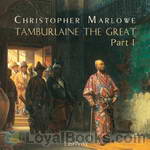 Tamburlaine the Great
Tamburlaine the Great
Tamburlaine the Great is the name of a play in two parts by Christopher Marlowe. It is loosely based on the life of the Central Asian emperor, Timur 'the lame'. Written in 1587 or 1588, the play is a milestone in Elizabethan public drama; it marks a turning away from the clumsy language and loose plotting of the earlier Tudor dramatists, and a new interest in fresh and vivid language, memorable action, and intellectual complexity. Along with Thomas Kyd's The Spanish Tragedy, it may be considered the first popular success of London's public stage... | |
 Tragical History of Doctor Faustus (1616 version)
Tragical History of Doctor Faustus (1616 version)
The Tragicall History of the Life and Death of Doctor Faustus, commonly referred to simply as Doctor Faustus, is a play by Christopher Marlowe, based on the Faust story, in which a man sells his soul to the devil for power and knowledge. Doctor Faustus was first published in 1604, eleven years after Marlowe's death and at least twelve years after the first performance of the play. "No Elizabethan play outside the Shakespeare canon has raised more controversy than Doctor Faustus. There is no agreement concerning the nature of the text and the date of composition... | |
 Edward II
Edward II
Christopher Marlowe's Elizabethan tragedy focuses on the downfall of King Edward II, whose love for his favorite courtier, Piers Gaveston, leads to rebellion. | |
By: Tom Godwin (1915-1980) | |
|---|---|
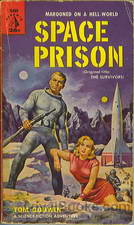 Space Prison
Space Prison
AFTER TWO CENTURIES….The sound came swiftly nearer, rising in pitch and swelling in volume. Then it broke through the clouds, tall and black and beautifully deadly — the Gern battle cruiser, come to seek them out and destroy them. Humbolt dropped inside the stockade, exulting. For two hundred years his people had been waiting for the chance to fight the mighty Gern Empire … with bows and arrows against blasters and bombs! | |
By: Samuel Richardson | |
|---|---|
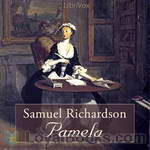 Pamela, or Virtue Rewarded
Pamela, or Virtue Rewarded
Now first Published In order to cultivate the Principles of Virtue and Religion in the Minds of the YOUTH of BOTH SEXES.A Narrative which has its Foundation in TRUTH and NATURE; and at the same time that it agreeably entertains, by a Variety of curious and affecting Incidents, is intirely divested of all those Images, which, in too many Pieces calculated for Amusement only, tend to inflame the Minds they should instruct.(From the frontspiece of the first edition)Pamela tells the story of a 14 year old lady’s maid named Pamela whose master, Mr... | |
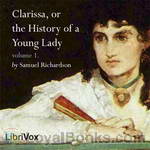 Clarissa, or the History of a Young Lady
Clarissa, or the History of a Young Lady
Clarissa Harlowe, the tragic heroine of Clarissa, is a beautiful and virtuous young lady whose family has become very wealthy only in recent years and is now eager to become part of the aristocracy by acquiring estates and titles through advantageous pairings. Clarissa’s relatives attempt to force her to marry a rich but heartless man (Roger Solmes) against her will and, more importantly, against her own sense of virtue. Desperate to remain free, she is tricked by a young gentleman of her acquaintance, Lovelace, into escaping with him. However, she refuses to marry him, longing — unusual for a girl in her time — to live by herself in peace. | |
By: Henry A. Beers | |
|---|---|
 A Brief History of English and American Literature
A Brief History of English and American Literature
Henry Augustin Beers (1847-?), native of Buffalo, NY and professor of English at Yale, with the help of John Fletcher Hurst (1834-1903), Methodist bishop and first Chancellor of American University, has written a sweeping thousand 900 year history of English literature, up to the end of the 19th century. Although at times biased and sometimes misguided (as when he dismisses Mark Twain as a humorist noteworthy in his time but not for the ages), his research is sound and his criticism is interesting and quite often very balanced... | |
By: John Charles Dent (1841-1888) | |
|---|---|
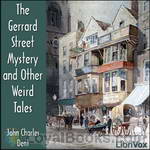 The Gerrard Street Mystery and Other Weird Tales
The Gerrard Street Mystery and Other Weird Tales
John Charles Dent, the author of the following remarkable stories, was born in Kendal, Westmorland, England, in 1841. His parents emigrated to Canada shortly after that event, bringing with them, of course, the youth who was afterwards to become the Canadian author and historian. Mr. Dent received his primary education in Canadian schools, and afterwards studied law, becoming in due course a member of the Upper Canada Bar. He only practised for a few years, then returned to England to pursue a literary career, writing mostly for periodicals... | |
By: Giambattista Basile (1566 or 1575-1632) | |
|---|---|
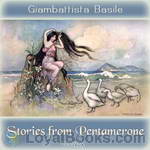 Stories from Pentamerone
Stories from Pentamerone
This is one of the oldest written collections of fairy tales. Although the names are different, listeners should recognise many of the stories as the basis of modern fairy tales. Be warned however, that these stories are a lot more violent and gruesome then the Disney versions you may be familiar with. Parents should listen to the files to gauge their suitability before allowing children to listen to them. | |
By: Augusta Groner (1850-1929) | |
|---|---|
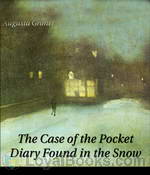 The Case of the Pocket Diary Found in the Snow
The Case of the Pocket Diary Found in the Snow
The account of some adventures in the professional experience of a member of the Imperial Austrian Police. (from the text) | |
By: Albert Bigelow Pain | |
|---|---|
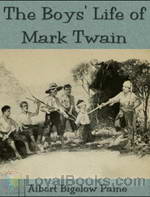 The Boys' Life of Mark Twain
The Boys' Life of Mark Twain
Albert Bigelow Paine was Samuel Langhorne Clemens’ (Mark Twain’s) biographer. He lived with Twain, collecting ideas and material for a biography, for a few years before Twain’s death in 1910. Six years later Paine published this “story of a man who made the world laugh and love him.” For those who have read or listened to Mark Twain’s works, Paine’s work is an invaluable resource to better understand Twain, the stories behind his stories and his life with those he loved and with whom he worked. | |
By: Harold MacGrath (1871-1932) | |
|---|---|
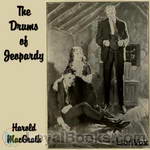 The Drums of Jeopardy
The Drums of Jeopardy
The Drums of Jeopardy is a 1920 American novel by Harold MacGrath. The story was serialized by the The Saturday Evening Post beginning in January of 1920.In 1922 the book was made into a Broadway play and the following year a motion picture. A second film version appeared in 1931.It is said that a young Boris Karloff, who previously had a few uncredited film roles, chose his stage name for his first screen credit in 1920 from a Russian mad scientist character named “Boris Karlov” in this novel... | |
 The Pagan Madonna
The Pagan Madonna
The Pagan Madonna, one of Harold MacGrath's numerous novels, set in Shanghai, tells a story of intrigue, murder, and illicit art “collecting.” The paths of Jean Norman, a Red Cross nurse from the United States, Ling Foo, a shifty pawn shop keeper, and Anthony Cleigh, millionaire art collector, cross and recross in growing intrigue over a string of beads. It is a world where “. . . every move you make is governed by Chance--the Blind Madonna of the Pagan . . . .” (Introduction by Don Jenkins) | |
By: Horace Walpole | |
|---|---|
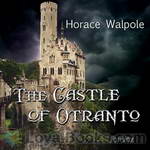 The Castle of Otranto
The Castle of Otranto
The Castle of Otranto is a 1764 novel by HoraceWalpole. It is generally held to be the first gothic novel,initiating a literary genre which would become extremelypopular in the later 18th century and early 19thcentury. Thus, Castle, and Walpole by extension isarguably the forerunner to such authors as AnnRadcliffe, Bram Stoker, Daphne du Maurier, andStephen King. | |